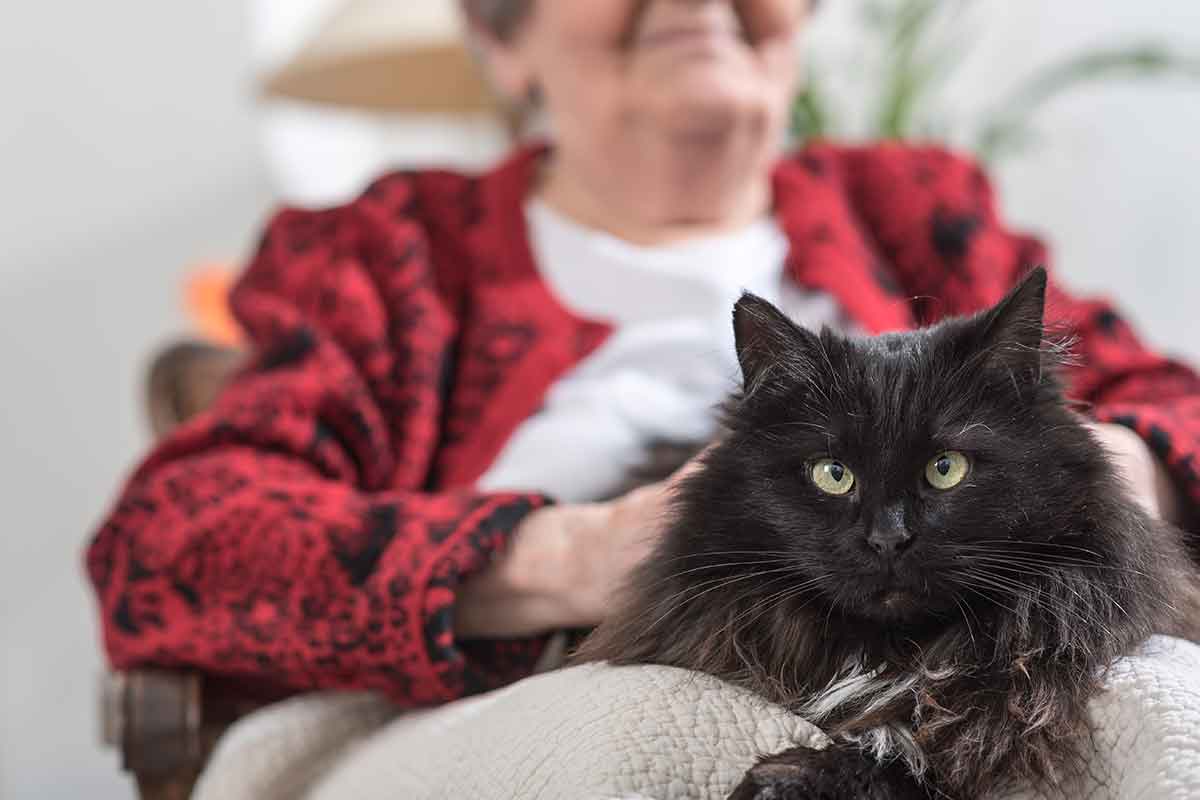If you’ve known more than one cat in your lifetime, you know that each cat is unique, with her own personality. Behaviorists have been working on ways to categorize feline personalities, usually with the goal of matching up cats with families (both human and feline) where they will best fit in. But a group of researchers in Australia and New Zealand have approached this question from a different angle. If we can accurately assess the personalities of cats in our homes, they reasoned, that might suggest ways we can make their lives better.
The researchers defined feline personality as “consistent individual differences in behavioral patterns,” and they started out by asking the question: How many clear and reliable factors depict personality in pet cats, and what traits are part of each personality? They designed a survey with 52 feline personality traits—things like vigilant, irritable, inventive, affectionate, shy, cooperative, and decisive—and asked the owners of 2,802 pet cats to rate their cats for each trait on a seven-point scale, ranging from “not at all” to “very much so.” Figuring cat owners know their cats best, in this study researchers had volunteers in South Australia and New Zealand take the survey on line. (You can read the whole study, including the cat owner survey, here: https://doi.org/10.1371/journal.pone.0183455)
Feline Personality Spectrum
They found they could boil all those 52 traits into five basic feline personalities. Individual cats fell on a continuum for each of these personalities—no cat is all one way or another.
- Neuroticism: these cats scored higher on traits such as shy, insecure, anxious, fearful of people, suspicious
- Impulsiveness: traits such as erratic, reckless, impulsive, distractible
- Extroversion: traits such as active, vigilant, curious, decisive, inventive, smart
- Agreeableness: traits such as friendly to people, affectionate, gentle, playful
- Dominance: traits such as bullying, aggressive to other cats, jealous
The authors of the study then suggested how these personality types might reveal something to us about what different cats need to be happy. Cats who score high on neuroticism, for example, may be stressed, either by their humans or by other cats in the household. They may appreciate more hiding places, separate resources, and access to quiet areas. Cats with low neuroticism tend to be bold and more likely to roam far afield if they are allowed outdoors unsupervised.
Less Stress, Better Adjustment
Cats with high impulsiveness scores may also be in a stressful environment, and owners might need advice from an animal behaviorist to figure out what is stressing their cat. Cats with low scores in this area are likely to be well adjusted to their environment and enjoy a fixed routine.
Cats with high scores for extroversion may need more complex environmental enrichment and stimulation, such as food foraging toys, new items to sniff and explore, and lots of social interaction with humans and other animals, or else they easily become bored. Low scores for extraversion correlate with higher scores for traits such as clumsiness, and aimlessness, and may indicate health or cognitive problems.
High scores for agreeableness are likely in cats who are well adjusted and have what they need. Low scores, and traits such as irritability and aggressiveness toward people, may reflect poor socialization, frustration, boredom, or pain or illness.
Dominance in this study looked at the cat’s personality as it relates to other cats. A cat who scores high is likely to bully other cats over access to important resources, such as food, litter boxes, territory, and even human caregivers. This particular personality may have a biological basis, as well as a behavioral one, the researchers suggest.
The study also concluded that when a cat with one type of personality suddenly changes to another type, it’s time for a visit to the veterinarian.
This article was reviewed/edited by board-certified veterinary behaviorist Dr. Kenneth Martin and/or veterinary technician specialist in behavior Debbie Martin, LVT.
Beth Adelman, MS, is a cat behavior consultant in New York City. Beth is currently on the executive committee of the feline division of the Pet Professional Guild, and is a frequent speaker on cat behavior.








